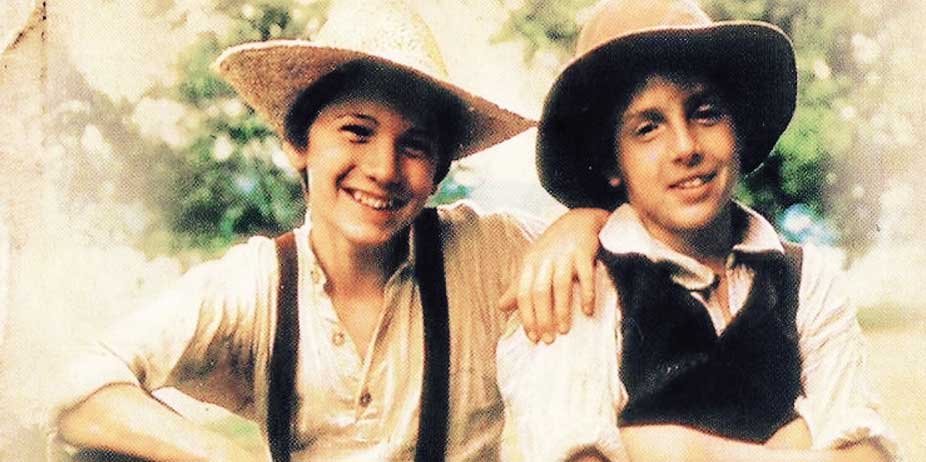The Adventures of Huck Finn (2007)
Reviewed by: Emilee Somers
The
Adventures of Huckleberry Finn has been one of my
favorite sagas since grade school—the nostalgic tale of
a boy, his raft and his river somehow epitomize a
wilder, simpler period in American history. I always
regretted the lack of a definitive movie interpretation.
While this version has its flaws, it is the most
accurate and appealing adaptation I have seen.
Huck Finn (Patrick Day), partner in
crime with the infamous Tom Sawyer along the 19th
century Mississippi River, has grown weary of life with
his wealthy widow guardian. He gains unexpected liberty,
however, when forced to run away after the return of his
alcoholic father. Huck teams up with Jim, a slave
running from the threat of being sold further south, to
make an epic trip to freedom by an unusual means—a raft.
Viewers (along with Huck) realize
the depth and strength of his character as he and Jim
endure everything from murderers to unscrupulous conmen
and a vicious family feud. Joined by an array of
comical, tragic, and sometimes unseemly characters, the
unlikely duo takes us on the adventure of a lifetime.
Their story captures the stark contrast between the slow
nostalgia of “white” southern wealth with the harshness
of slavery, while revolving around an appealing young
hero, who must ultimately choose between following his
culture or his heart. The greatest flaw I saw in this
film was—despite its otherwise faithful rendition of the
book—that it left out a major part of the story.
Like the novel, Huck Finn deals with the bigotry rampant in antebellum south. However, Huck is a breath of fresh air, with his compassionate nature and willing self-sacrifice in helping a runaway slave. Though initially conditioned by the racism with which he has grown up, Huck learns to see past Jim’s color into his heart (this always made him my favorite, but the reappearance of Twain’s beloved character will pleasantly surprise fans of Tom Sawyer). Though slow at points, this film struck me with the beauty of its music, landscape, and character. Unlike the rough-and-tumble Huck of most productions, Patrick Day’s performance brings Huck to life with a depth and sensitivity that keeps him from becoming just another mischievous Tom Sawyer. Where other versions have fallen short in their surface interpretation of the novel, this adaptation captures the essence of Twain’s humor, nostalgia, and social commentary. It is not just a boy, his raft, and his river—it is his strength of character, his compassion, and his love for a man rejected by society that makes this story an endearing epic.
Sexual Content:
Most memorable among their companions are the King and the Duke, two swindlers who pose as everything from doctors to preachers to actors. These characters constitute the only questionable material in the film. They perform a crude (though non-graphic) skit, and while collecting donations at a camp meeting (posing as a missionary) the ‘King’ eagerly hugs and man-handles some of the women, making himself the ‘sketchy old creep’ we were warned about as children. Aside from those two scenes, there is little objectionable content in the film.
Language:
There are only one or two swears, in stark contrast to Disney’s version, which is overloaded with strong language.
Violence:
A man visits a tavern with prostitutes, is thrown from a window and later murdered. A feud decimates the entire male side of a family. None of the violence is graphic.

